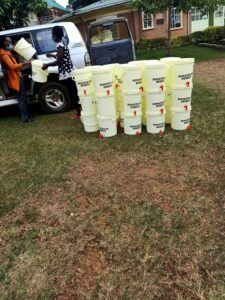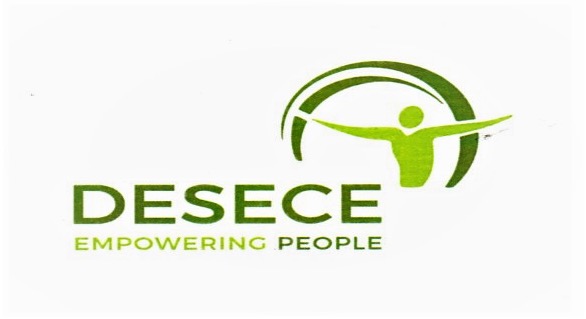About Us
If you want to learn more about us, you’re in the right place. Read to learn how we managed to grow our network so fast.
Visit our facebook page to learn more about our projects and events.
Visit our linkedin profile to learn more about our careers and portfolio.
YouTube
Visit our youtube channel to learn more about our projects and events.
Our History
DESECE started as a CBO in 1993 with DELTA, WINDOW, Civic Education (Human Rights, Peace and Reconciliation), Mainstreaming Gender, and HIV and Aids, and organic Agriculture as its main activities additionally due to expanding needs DESEE is also implementing Policy Dialogue, Reproductive Health, Community Library, Hospitality and Agro-ecology. In 2006, the organization transformed itself into an NGO status (now DESECE) because there was need to cover an expanded target population in the region
DESECE organization operates in Bungoma County and parts of Trans-Nzoia county. Most of the inhabitants of these areas are mainly Bukusu, Tachoni, Teso, Sabaot, and kikuyu. Bungoma County has a population of 1,670,570 while Trans-Nzoia has a population of 990,341. Bukusu are the majority in population followed by the Sabaot, Tachoni, Teso, and Kikuyu respectively. The average family size is approximately 8 people according to UN 2018 report on fertility rate in Africa and with this rate the population is expected to double by 2050.
Most of the people have an average of 1.5 acres of land while a few large scale farmers hold an average of 30 acres. Continuous increase in population in the area has led to further land fragmentation decreasing the average size of land holdings to uneconomical units; small-scale farms average only 0.3 hectares while large-scale farms average only 3 hectares. The percentage of farmers with title deeds is 45%. This means that farmers without title deeds are 55%. This is a significant statistic as it means that 55% of the farmers cannot get credit against their land.
Main economic activity is subsistence farming where farmers practice agriculture on small scale farms. They grow food crops such as maize, millet, sorghum, vegetables for their own consumption. They also keep livestock such cows, sheep, goats, chicken for sale as well as for consumption. Others run small scale business within the area.


